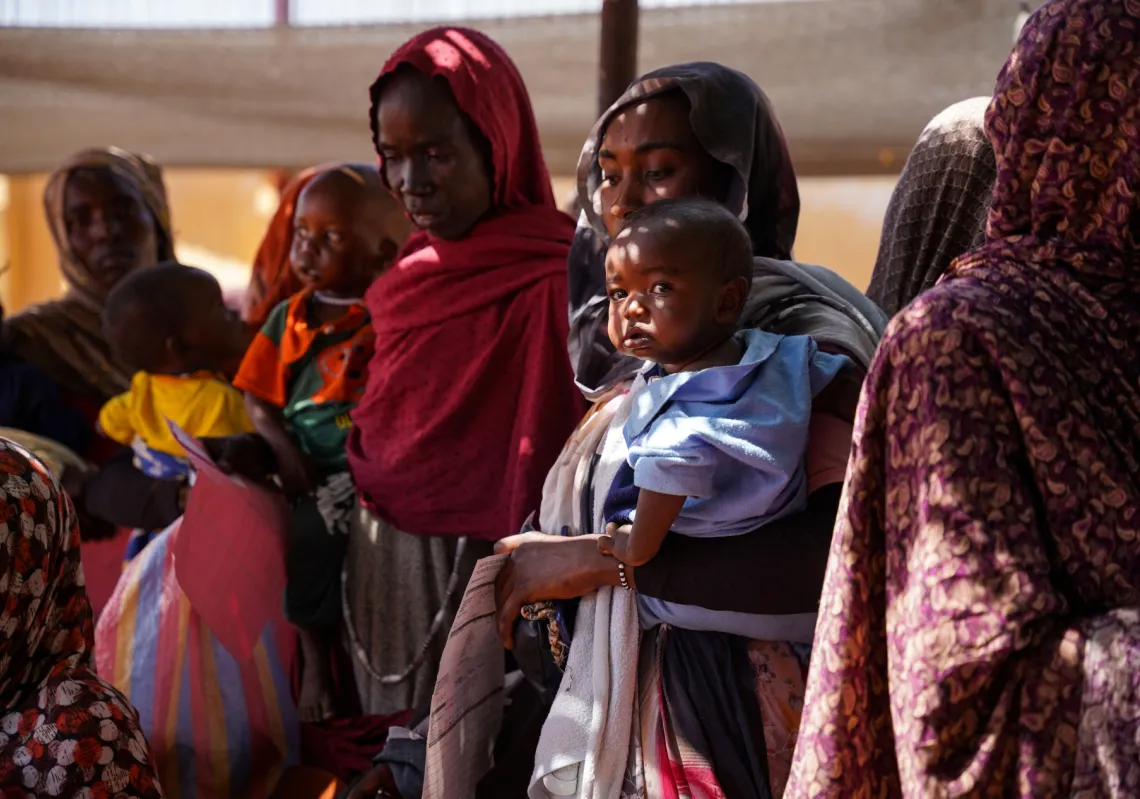A new global survey by the Pew Research Center affiliated with Harvard University shows that President Barack Obama continues to be popular and to improve America’s standing in much of the world. The notable exception is Muslim countries—where he is less favorably viewed than he was a year ago.
For example, in Egypt, the setting of the president’s much-heralded address, only 17 percent said they had a favorable view of the US, the lowest rating in five years, a “pre-Obama rating.” Last year, 27 percent of Egyptians polled said they had a favorable view. In Jordan, US approval rating has fallen to 20 percent.
The most surprising finding was in Turkey where support for Obama fell by a third, from 33 to 23 percent, and many of those polled in Turkey—a well-standing NATO member—said they were disappointed with current US foreign policy.
A majority of Muslims say that the US represents a military threat to them, especially in Lebanon, Pakistan, Egypt, Indonesia and Turkey. This is a very alarming development, given Obama’s determined efforts to improved America’s damaged relations with Muslim populations since his inauguration.
A year after his historic speech to the Muslim world from Cairo Obama’s favorability ratings are as low as his predecessor’s, George W. Bush, a surprisingly hard blow. “The lack of support in the Muslim world is coincident with the wars in Iraq and Afghanistan,” said Andrew Kohut, president of Washington’s Pew Research Center, which conducts the annual survey. There’s also “disappointment” among Muslims about the US under Obama, added Kohut. Many have a perception, for example, that the US still “does not deal fairly” in the Israeli-Palestinian conflict.
Indeed, Arabs and Muslims are deeply disappointed and uniformly cite a gap of credibility between Obama’s rosy promises and his actions. Almost a year after Obama's address to the Muslim world, the reality of his Middle East policy is in sharp contrast to the promising rhetoric and high expectations he raised. Obama's address, coupled with a concerted outreach strategy, made a deep impression among Arabs and Muslims. Many hoped that the young African-American president would seriously confront the challenges facing the region and establish a new relationship with the world of Islam.
Obama raised expectations that concrete action would follow. Even oppositional forces, such Hezbollah, Hamas and the Muslim Brotherhood, conceded that what Obama said represented a breath of fresh air in US foreign policy. But across the political spectrum, all stressed they would assess his policies and actions, not only his words.
A year later, as the new global survey by the Pew Research Center shows, there is an increasing belief among Arabs and Muslims that Obama has failed to live up to his sweet words. The terminology of the “War on Terror” is no longer in use, but Guantanamo Bay is still open and President Obama has escalated the war in Afghanistan, Pakistan, Somalia, Yemen and elsewhere. His Arab-Israeli peace drive has reached a deadlock and Obama lost the first round against Israeli Prime Minister Benjamin Netanyahu. His promise to free the Palestinians from Israeli military occupation and to help bring about an independent Palestinian state will unlikely materialize in his first term in the White House.
Former Secretary of State Madeleine Albright, who co-chairs the Global Attitudes Project, acknowledged the gap between Obama’s rosy rhetoric and the stark reality of US foreign policies in the region. “Cairo was a very large departure, a speech by an American president in a Muslim country ... and there was a lot of hope that there would be a lot more intervention” by the US on issues of interest to Muslim populations, such as the Middle East peace process, Albright said.
“There is recognition of this [sense of unfulfilled expectation] in the administration,” Albright stressed. Initiatives such as Obamas’ recent “entrepreneurship summit” with Muslim business representatives and organizations in Washington DC, suggest “they are trying to find ways that there can be more interaction,” she added.
An increasing number of Arabs and Muslims say that the young president talks the talk, but does not walk the walk, and that his policies are an extension of his neoconservative predecessor—a sweetened poison. For them, Obama's rhetoric rings hollow, empty talk.
Public opinion polls and surveys like the Pew study do not fully reflect the depth and intensity of the disillusionment with Obama. An entrenched view has taken hold among Muslims that the US is not genuine about engagement and pays lip service to their hopes, fears and aspirations.
Obama likely misjudged the complexity of the region and the exuberant political costs associated with a transformational strategy. His promises of genuine engagement and building a new relationship with Islam's 1.3 billion people are no longer taken as seriously—a fact that undermines the credibility and efficacy of his foreign policy in the Greater Middle East, including the wars against Al-Qaeda, the Taliban in Afghanistan and their Pakistani cohorts and counterinsurgency in general.
Obama has implicitly conceded that his Cairo speech rhetorically overreached. In an interview with Time magazine, Obama surprised his interviewer when pressed on the Israeli-Palestinian issue, "This is just really hard... and if we had anticipated some of these political problems on both sides earlier, we might not have raised expectations as high."
Although it is not too late for Obama to close the gap between rhetoric and action, sadly for now, he has not taken bold steps to achieve a breakthrough in America's relations with the Muslim arena. His foreign policy is more status quo and damage control than transformational. Like their American counterparts, Muslims desperately long for real change that they can believe in.
If Obama really wishes to repair the damage wrought by his predecessor and to build a new relationship based on mutual interests and respect, he must have the will and vision to chart a new course of action and invest some of his precious political capital in resolving festering regional conflicts. First and foremost ought to be the establishment of a viable, independent Palestinian state, and making structural investment in institution building and civil society.
Given the gravity of domestic challenges facing the US, the worst environmental disaster in history and a declining economy, many Americans wonder if it matters what the world thinks of their country.
“It matters because no matter how strong we are, the US cannot do everything by itself,” said the former secretary of state, Albright. America’s biggest challenges—including the economy, terrorism and energy—require multinational and cross-border solutions, she added: “All these issues ... affect our day-to-day life, [and] “if the US is doing well and is popular, then the US can do something.”
For example, according to the survey, support among Muslim populations for terrorist actions like suicide bombings and for Osama bin Laden and Al-Qaeda has declined considerably. But what complicates US efforts to combat terrorism is suspicion among Muslim populations of American leaders’ rationale and political agenda.
On balance, Muslims do not buy the US narrative about either the gravity of the terrorist threat or the definition of terrorism. For many Muslims, America’s lumping together of legitimate “resistance” groups, such as Palestinian Hamas and Lebanon’s Hezbollah, with terrorist Al-Qaeda is unacceptable and politically motivated.
Perhaps Muslims must ask themselves some hard questions: What influence can Muslim states and leaders exercise in Washington, and what they are willing and able to do to support the desired transformation of relations? Will they be willing to employ their rich assets and present a genuine unified position? If history is a guide, the answer is a resounding no. If they really want to see meaningful change, then Muslims must lend a helping hand to steer the US foreign policy ship in the right direction.
For after all, Obama does not possess a magical wand and does not bare all the blame for the lack of political progress in the region. Unfortunately, Arabs and Muslim placed high and unreasonable expectations on a new president without considering the complexity of the US foreign policy decision-making process nor the reality of American domestic politics. The imperial presidency is powerful but presidents' hands are often constrained by Congress, the foreign policy establishment, domestic politics and the media and public opinion and advocacy groups. Obama's domestic and foreign policy agenda is crowded and, on his own, he cannot deliver an Arab-Israeli peace settlement.
Instead of putting their eggs in the US basket, Arabs and Muslims must be masters of their own destiny; they must realize that Obama’s ability to structurally change US foreign policy is limited, and that he should not held accountable for all the festering crises in the region.
Fawaz A. Gerges – Professor of Middle Eastern Politics and International Relations at the London School of Economics, London University. He has written extensively on America's relations with the Arab world. Among his books is "America and Political Islam: Clash of Cultures or A Clash of Interests?"







